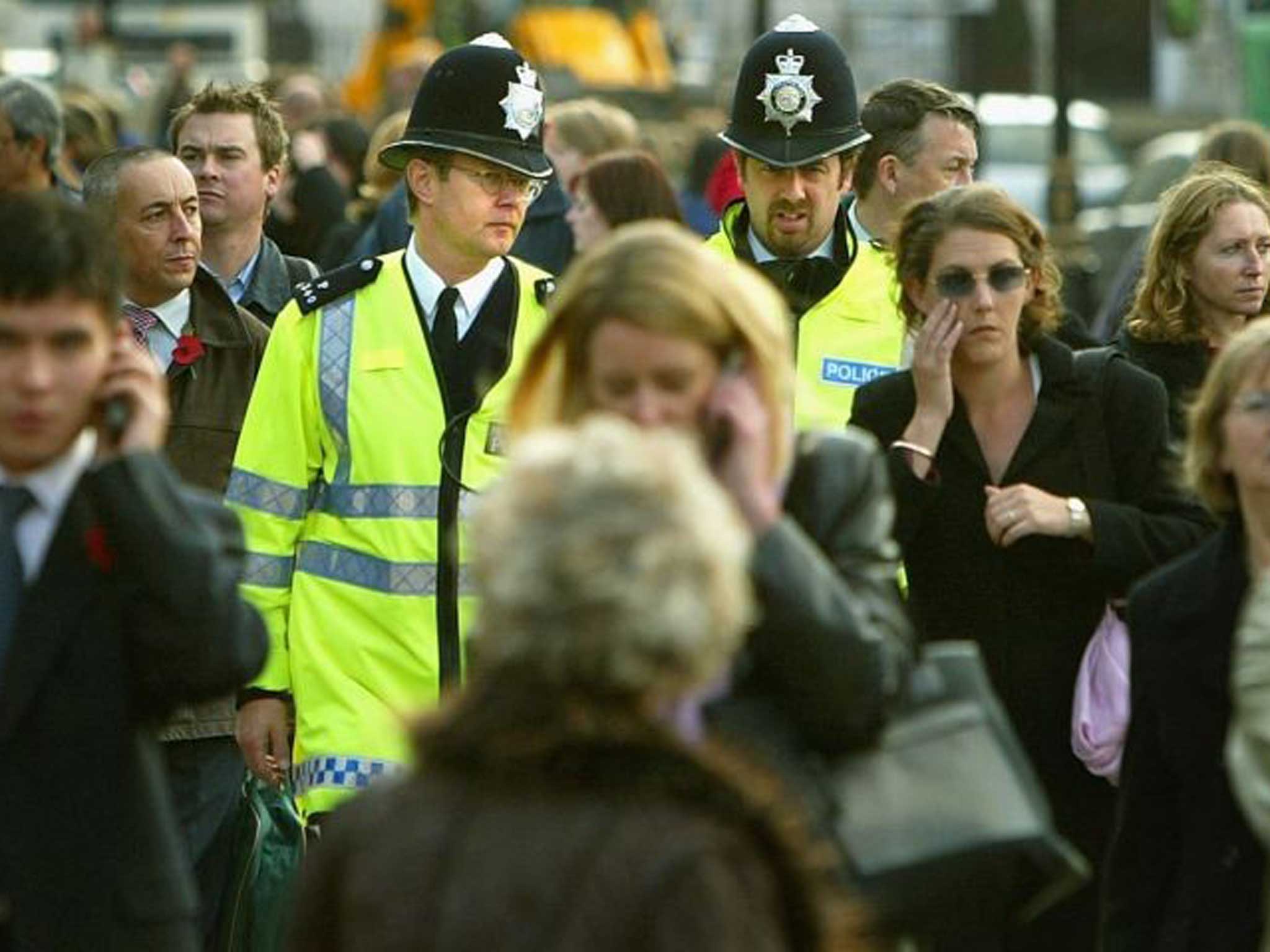Police should investigate every crime, says ex-Met boss Lord Stevens in call for more 'bobbies on the beat'
In long-awaited report, Lord Stevens calls for a radical overhaul of the way forces operate

Britain’s police forces have retreated into a “discredited, narrow and reactive” response to crime that is failing local communities, the former head of Scotland Yard will caution this week.
Lord Stevens will give a warning that police forces have presided over a collapse in “bobbies on the beat” as they reduce staff numbers in the wake of government cuts, and will call for communities to be given a guaranteed minimum level of policing.
Lord Stevens, who was head of the Met from 2000 to 2005, has been leading an independent commission into the future of policing set up by the Shadow Home Secretary Yvette Cooper two years ago. The commission, which will report tomorrow, is to recommend a radical overhaul of the traditional “responsive” policing model.
“The police are not simply crime fighters,” the report says. “Their civic purpose is focused on improving safety and well-being within communities and promoting measures to prevent crime, harm and disorder.
“The Commission recommends that the social purpose of the police should be enshrined in law. This will help to bring much-needed consensus to the question of what we expect the police to do.”
Among its recommendations are:
* A request to the police for assistance or reporting a crime will be met by a mandatory commitment to a specific response time.
* All reported crime will be investigated, or an explanation given of why it is not possible to do so.
* Victims are to be regularly updated, by right, on the progress of an investigation.
“The protection of neighbourhood policing demands that the legislated national purpose is backed up with a set of national minimum standards of police service which everyone should be entitled to receive, and which local police forces and those who call them to account must deliver,” the report will say.
Labour is expected to endorse the findings and will confirm that it will not abolish the Police Commissioners set up by the coalition. The party has also released figures showing the loss of more than 10,000 police officers from the frontline since 2010.
The report is understood to suggest that significant savings could be made by forces sharing procurement, IT, and other functions, to pay for new front line policing.
These are likely to be controversial as they will again call into question the purpose of having 43 separate forces – with many functions unnecessarily replicated. But successive governments have failed to rationalise policing structures.
“This is about having very strong local policing while merging functions which can best be done at a national level,” said one source close to the commission.
“We are well aware of the need to change the police within existing budgets, but we do believe there are savings that can be made which will allow us to restore neighbourhood policing, which has been disappearing at an alarming rate.”
Chaired by Lord Stevens, the members of the commission included the independent reviewer of terrorism legislation, Lord Carlile, the former heads of Europol and Interpol, and the former head of MI6, Sir Richard Dearlove.
